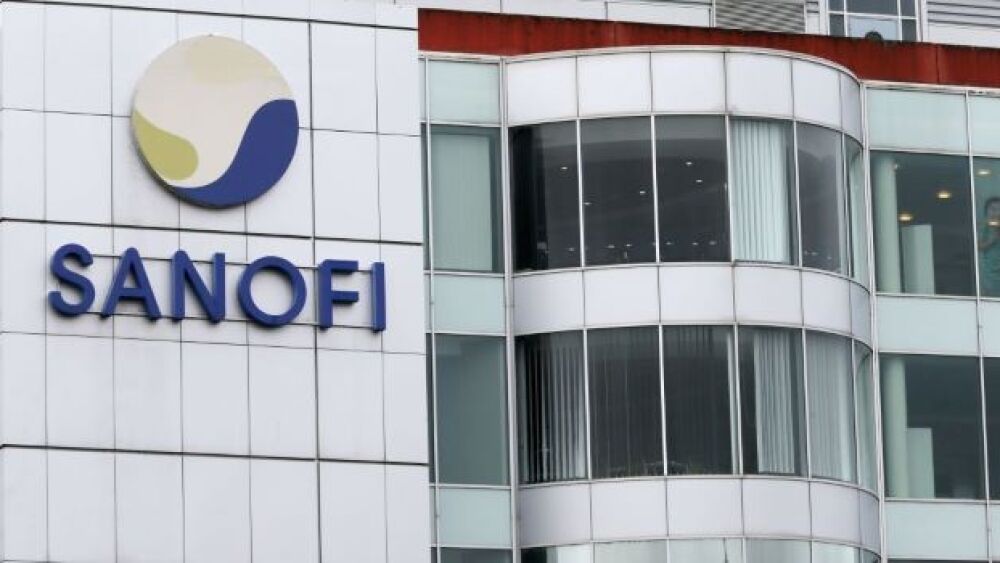Sanofi and AstraZeneca won European approval for the first preventative RSV treatment for a broad population of newborns and infants.
Michel Stoupak/NurPhoto via Getty Images
Sanofi and AstraZeneca won European approval for the first preventative RSV treatment for a broad population of newborns and infants, the companies announced Friday.
The monoclonal antibody Beyfortus (nirsevimab) is the first single-dose protective medicine approved in the European Union for the prevention of RSV LRTD. The medication has been approved for broad use in infants, including those born healthy, pre-term children and children with certain medical conditions.
The approval comes at a time when RSV infections have been surging across the globe. In infants, RSV is the most common cause of LRTD, including bronchiolitis and pneumonia.
Approval for Beyfortus was based on data from multiple clinical programs, including the Phase III MELODY and Phase II/III MEDLEY trials. There were additional mid-stage programs that demonstrated the safety and efficacy of the monoclonal antibody as well.
Phase III data showed that Beyfortus provided a 74.5% reduction in lower respiratory tract infections caused by RSV requiring medical care in healthy infants.
AstraZeneca and Sanofi noted that in the MELODY and Phase IIb trials, a single dose of Beyfortus met its primary endpoint of reducing the incidence of medically attended lower respiratory tract infections caused by RSV compared to placebo. A pooled analysis showed Beyfortus demonstrated an efficacy of 77.3% against RSV-associated hospitalizations.
Thomas Triomphe, executive vice president of vaccines at Sanofi, called the approval of Beyfortus a “landmark day for RSV prevention.” He said the broadly protective option of the antibody would provide parents with a new way to help protect their children from RSV infections.
An Increasingly Competitive Space
Development of prevention for RSV has become a race between many companies, with GSK and Pfizer taking early leads for vaccine development in the United States.
This week, Pfizer posted positive late-stage data for an RSV vaccine administered to expectant mothers and GSK also secured Priority Review for its vaccine for older adults, another patient population susceptible to RSV infection.
While many companies are developing vaccines against RSV infection, Sanofi and AstraZeneca opted to create an antibody-based treatment.
A Sanofi spokesperson explained to BioSpace the reason for this approach is that monoclonal antibodies do not require the activation of the immune system to help offer rapid and direct protection against disease.
“Because of this, Beyfortus has the potential to serve as a single-dose preventative option designed for all infants for protection against RSV lower respiratory tract disease from birth through their first RSV season,” the spokesperson said.
Clinical studies showed Beyfortus demonstrated the potential to provide timely, rapid and direct protection to newborns and infants “through a single dose passive immunization,” which is when antibodies are administered directly to a patient for the prevention of infectious disease. In contrast, active immunization aims to trigger the immune system to develop antibodies to fight a possible infection.
The spokesperson said the monoclonal antibody approach offers a high degree of flexibility regarding the timing of dosing and can be administered throughout the year, depending on the RSV seasonal pattern.
Following the win in Europe, Sanofi and AstraZeneca are planning potential regulatory approvals for the U.S. market, China and other areas. In the United States, Beyfortus has been granted Breakthrough Therapy designation.





